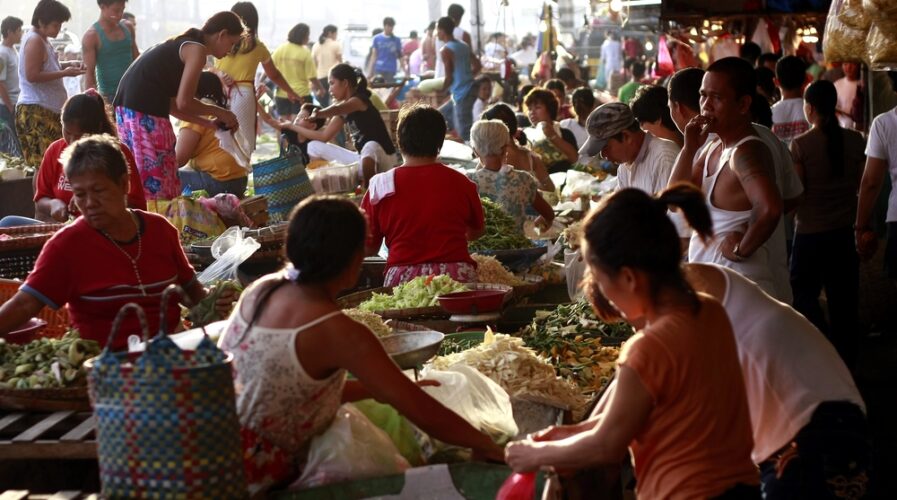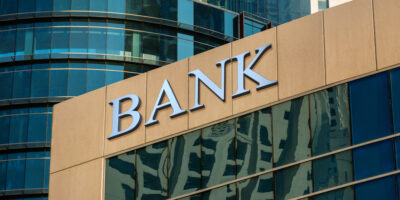
Fruits and vegetable vendors at a market in Quezon City, Philippines. A large number of Filipinos are underbanked or unbanked, making fintech services a boon to the development of financial inclusion there.
Digital banking in Philippines sees new contender, GOtyme
The digital banking scene in the Philippines is steadily growing as yet another bank secures a digital banking license from the central bank, Bangko Sentral ng Pilipinas (BSP).
Expected to launch in the second quarter of 2022, GOtyme is the latest to enter the fast-growing digital banking scene in the largely underbanked and unbanked Southeast Asian nation of 108 million.
GOtyme is a partnership between the Gokongwei Group, one of the biggest conglomerates in the Philippines, and Singapore-headquartered digital banking group Tyme.
This latest addition of GOtyme to the lineup of digital banks in the Philippines is part of BSP’s efforts to bring 70% of Filipino adults into the banked population and have 50% of payments done online by 2023.
This venture combines the trusted Gokongwei brand, reputation, and multi-industry operations with Tyme’s digital banking technology and hands-on experience.
The Gokongwei Group is one of the largest and diversified Filipino conglomerates serving a growing middle class with rising disposable incomes in the Philippines, Southeast Asia, and Australasia. Members have business interests in F&B, air transportation, real estate, banking, petrochemicals, and retail.
“This distribution strategy will assist in the democratization of financial services, addressing the needs of all Filipinos regardless of age, income, or geography,” said Jojo Malolos, President & CEO of GOtyme. Malolos will lead GOtyme, together with Nate Clarke, one of Tyme’s founding team members.
GOtyme’s digital banking offerings
The newest digital banking player will provide secure and easy onboarding through both an app and digital kiosks located throughout the mall and the retail footprint of the Gokongwei group.
According to GOtyme, three million customers joined TymeBank in South Africa through digital kiosks deployed in retail environments.
The bank had also recently launched MoreTyme, its Buy Now Pay Later product, across South Africa. The Philippines is the first of Tyme’s expansions into Asia.
Earlier in July, UnionBank received a digital banking license as well. This came after Singapore-based Tonik Digital Bank, UNOBank, and Overseas Filipino (OF) Bank had their licenses approved in April.
Digital banking in ASEAN
A report by BSP in 2019 found that a staggering 71% of Filipino adults are unbanked, making traditional banking services out of reach for most. This is largely due to the geographical nature of the Philippines, which comprises over 7,500 islands.
With more digital banking players in the market, financial inclusion will be within reach for more Filipinos as they will have a variety of choices for financial products that suit their needs.
Inclusivity, financial inclusion, and equal access to technology are crucial to economic development. Aside from the Philippines, financial inclusion has been an issue in many developing countries.
Improving financial inclusion in ASEAN
The ASEAN region, in particular, comprises over one billion of the world’s underbanked and unbanked populations. Access to a transaction account is a necessary step towards broader financial inclusion, including storing, sending, and receiving monies — serving as a gateway to other financial services.
Financial access improves the quality of life for populations, helping with day-to-day living. It helps families and businesses plan for everything from long-term goals to unexpected emergencies.
According to the World Bank, account holders are more likely to use other financial services, such as credit and insurance, to start and expand businesses, invest in education or health, manage risk, and weather financial shocks, which can improve the overall quality of their lives.
However, financial services by traditional banks have consistently been out of reach of many due to stringent regulations and requirements, most of which affect lower-income populations.
Recently, however, fintech players have been stepping up to serve this market of consumers with services for e-payments, digital banking, BNPL (buy now pay later), and the like.
This trend is also seen across various ASEAN nations such as Vietnam, the Philippines, Thailand, Indonesia, and Malaysia.
READ MORE
- Strategies for Democratizing GenAI
- The criticality of endpoint management in cybersecurity and operations
- Ethical AI: The renewed importance of safeguarding data and customer privacy in Generative AI applications
- How Japan balances AI-driven opportunities with cybersecurity needs
- Deploying SASE: Benchmarking your approach


